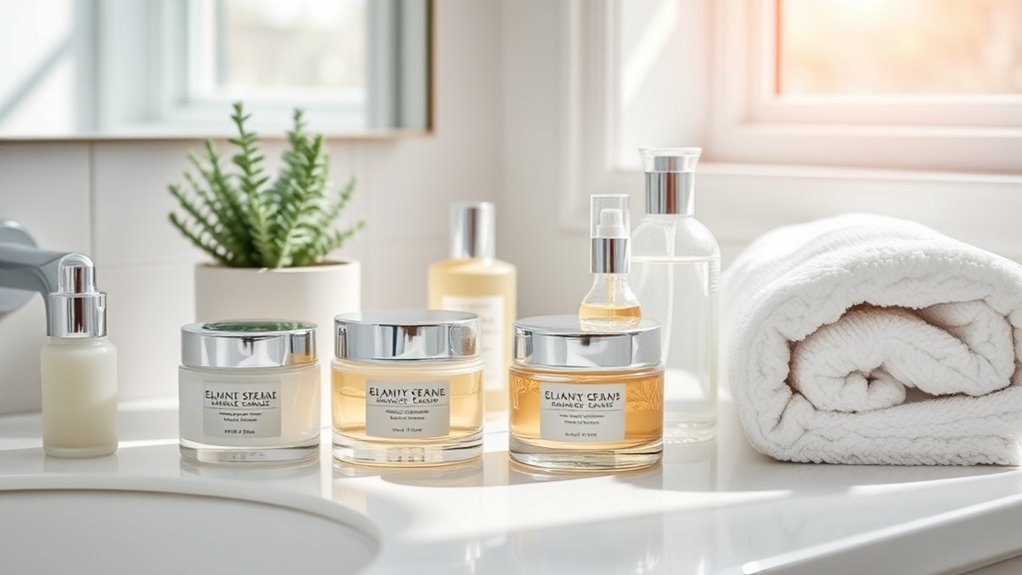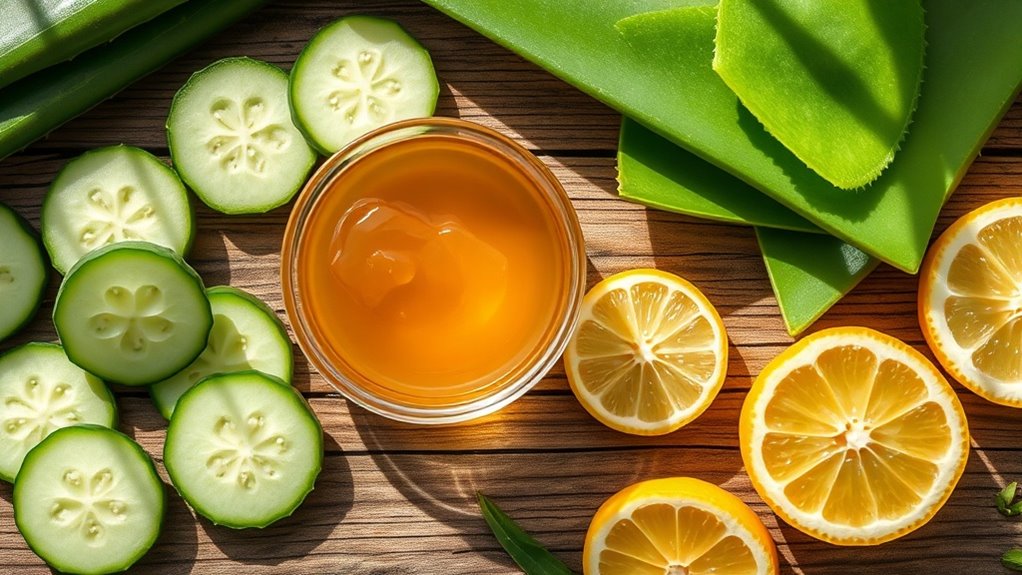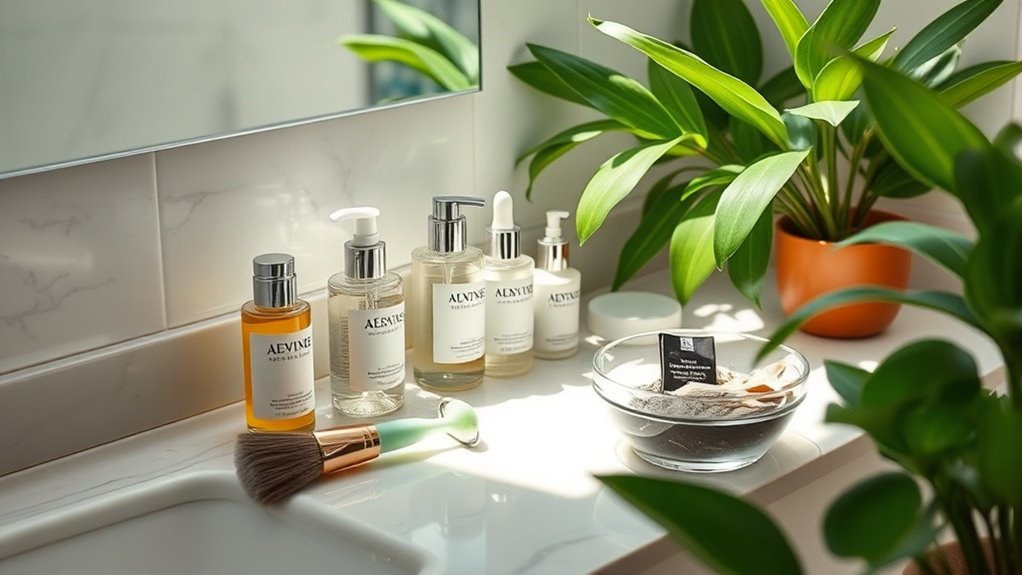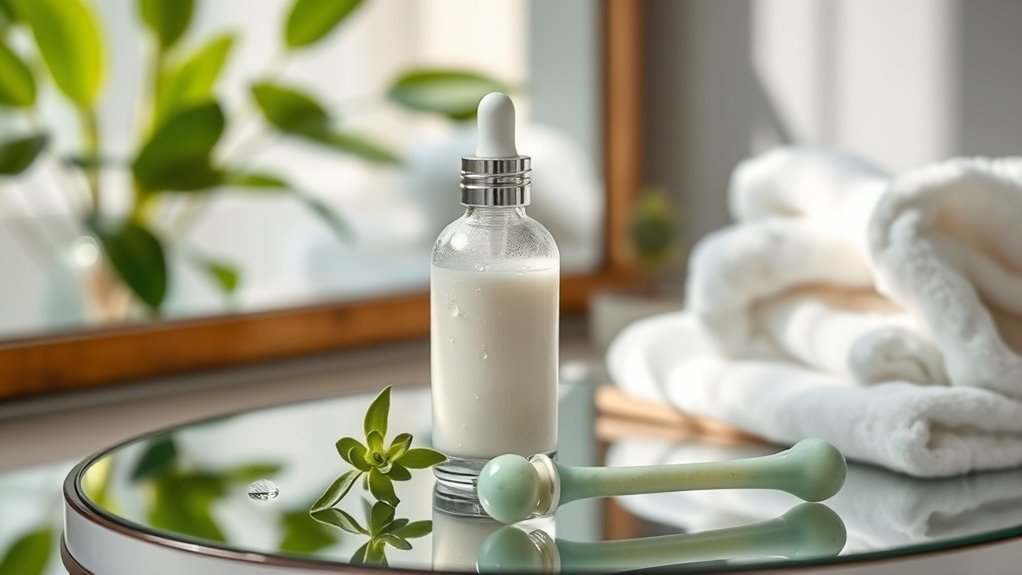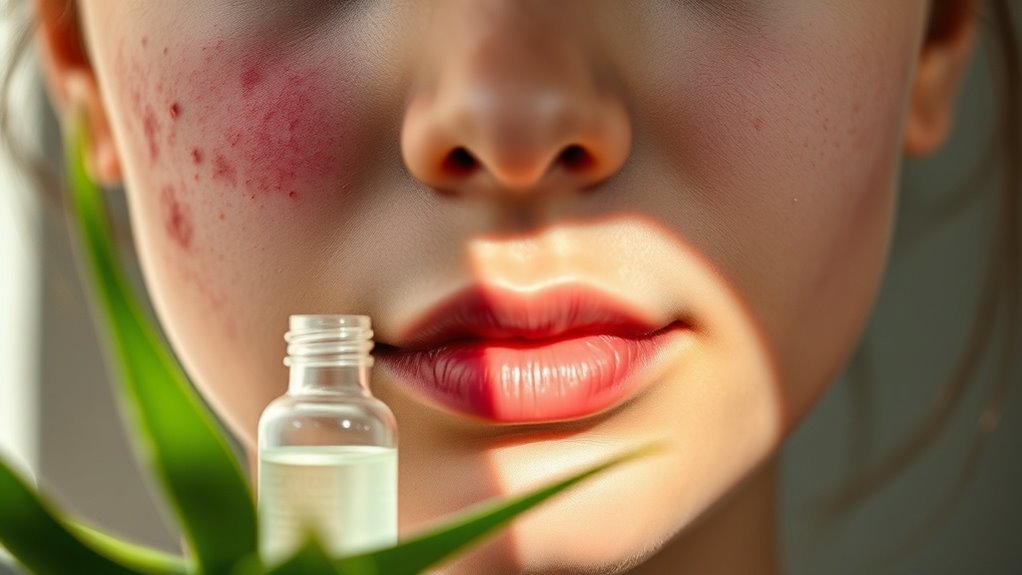How to Treat Acne Without Overdrying Your Skin
When managing acne, you might be concerned about overdrying your skin. It’s essential to strike a balance between effective treatment and protection of your skin’s natural barrier. Gentle cleansing is crucial, as is selecting the right products. Incorporating hydrating ingredients can also make a significant difference. To truly understand how to keep your skin clear without compromising its health, consider the following key strategies.
Understanding Acne and Its Causes
Acne, while often seen as a teenage concern, can affect individuals of all ages due to a variety of factors. Hormonal fluctuations, genetics, stress, and diet can contribute to the onset of acne, leading to clogged pores and inflammation.
It’s crucial to understand that while treating acne, you shouldn’t neglect the importance of moisturizing acne skin. Many individuals mistakenly believe that excessive drying will improve their condition, but this can exacerbate irritation and lead to increased oil production.
Instead, using non-comedogenic moisturizers that cater to acne-prone skin can help maintain hydration without triggering further breakouts. Moisturizing oily skin is essential in managing acne effectively while keeping your skin healthy and comfortable. This balance is essential in managing acne effectively while keeping your skin healthy and comfortable.
The Importance of Gentle Cleansing
Many people underestimate the importance of gentle cleansing in managing acne-prone skin. Harsh scrubs or abrasive cleansers can strip your skin of natural oils, leading to irritation and increased oil production. This cycle worsens acne, creating inflammation and breakouts.
Instead, opt for a gentle, non-comedogenic cleanser that effectively removes dirt, oil, and makeup without disrupting the skin’s barrier. Use lukewarm water and your fingertips, applying the cleanser in circular motions for about 30 seconds. Rinse thoroughly, and pat your skin dry with a clean towel—don’t rub!
Gentle cleansing helps to maintain the skin’s natural moisture while minimizing irritation, providing a balanced environment that supports healing and prevents new breakouts. Always prioritize this essential step in your skincare routine. Additionally, avoiding cleansing mistakes that harm your skin barrier can further enhance your acne treatment efforts.
Choosing the Right Acne Treatment Products
How do you know which acne treatment products will actually work for your skin? Start by identifying your skin type—oily, dry, or combination—since this affects product efficacy.
Look for key ingredients: salicylic acid helps unclog pores, benzoyl peroxide targets bacteria, and alpha hydroxy acids exfoliate. Choose non-comedogenic products to avoid further clogging pores.
Pay attention to formulations; gel-based products suit oily skin, while creams may benefit dry skin. Always check for potential irritants, especially if you have sensitive skin.
Start with a lower concentration to gauge tolerance before increasing dosage. Incorporating salicylic acid into your regimen can be particularly effective in addressing acne without overdrying.
Finally, consult with a dermatologist who can tailor a treatment plan specific to your needs, ensuring you aren’t exacerbating your acne while finding effective solutions.
Incorporating Hydrating Ingredients
Incorporating hydrating ingredients into your acne treatment routine is crucial for maintaining skin balance and preventing dryness.
Key hydrating ingredients, such as hyaluronic acid and glycerin, can effectively improve your skin’s moisture levels. To maximize these benefits, it’s important to apply moisturizers appropriately after cleansing and treating your skin. Additionally, understanding common misconceptions about moisturizers can help you select the right products for your specific skin needs.
Benefits of Hydrating Ingredients
Hydrating ingredients play a crucial role in acne treatment, as they help maintain skin moisture while preventing excess oil production.
Incorporating these elements into your skincare routine can vastly improve your skin’s balance and condition. Here are some key benefits:
-
Reduces Inflammation: Hydration can soothe inflamed blemishes, promoting healing.
-
Prevents Over-Drying: Balancing moisture levels prevents skin from becoming too dry, which can trigger more oil production.
-
Enhances Skin Barrier: A well-hydrated barrier protects against irritants, reducing the likelihood of breakouts.
-
Improves Overall Texture: Consistent hydration leads to smoother, healthier-looking skin over time.
Ultimately, using hydrating ingredients is vital for effectively treating acne without compromising your skin’s health.
Key Hydrating Ingredients Explained
While it’s essential to maintain adequate moisture levels for effective acne treatment, understanding which key hydrating ingredients work best can make all the difference. Here’s a breakdown of some vital ingredients you should look for:
| Ingredient | Benefits |
|---|---|
| Hyaluronic Acid | Attracts and retains moisture effectively. |
| Glycerin | Draws water to the skin and enhances skin barrier function. |
| Aloe Vera | Soothes inflammation and hydrates without clogging pores. |
| Squalane | Mimics skin’s natural oils, providing lightweight hydration. |
| Niacinamide | Reduces redness and regulates oil production, while hydrating. |
Incorporating products with these ingredients can help you achieve a balanced, hydrated complexion while managing acne effectively.
Application Tips for Moisturizers
To maximize the benefits of moisturizers containing key hydrating ingredients, you’ll want to focus on proper application techniques. Follow these steps to enhance absorption and effectiveness:
-
Apply to damp skin: This helps lock in moisture, enhancing the hydrating effects of your product.
-
Use gentle motions: Pat the moisturizer into your skin rather than rubbing, to avoid unnecessary irritation.
-
Target specifics: Focus on areas prone to dryness while ensuring even coverage across your face.
-
Follow a routine: Incorporate your moisturizer consistently after cleansing and any treatment products for optimal results.
Implementing these techniques will help you maintain hydration without exacerbating acne, promoting clearer and healthier skin overall.
Moisturizing Techniques for Acne-Prone Skin
Moisturizing is essential for maintaining balance in acne-prone skin, as it helps prevent excess oil production and supports the skin’s barrier function.
Opt for non-comedogenic moisturizers to ensure that you’re not clogging pores. Look for lightweight, oil-free formulas, often containing ingredients like hyaluronic acid or glycerin, which hydrate without adding greasiness.
Apply your moisturizer immediately after cleansing while your skin is still damp; this helps lock in moisture. You might also choose gel-based products that absorb quickly and leave a matte finish.
If you’re using acne treatments, allow those to fully absorb before applying your moisturizer to maximize effectiveness.
Regular use of an appropriate moisturizer encourages healthy skin regeneration and can reduce the frequency of breakouts. Incorporating simple practices from a daily skincare routine can further enhance skin hydration and overall health.
Lifestyle Changes to Support Healthy Skin
Here are some simple yet effective modifications you can implement:
-
Stay Hydrated: Drink plenty of water daily to maintain skin moisture and help flush out toxins.
-
Balanced Diet: Include fruits, vegetables, and whole grains. Minimize sugary and processed foods, which can exacerbate acne.
-
Regular Exercise: Engage in physical activity to improve circulation and reduce stress, both of which can benefit your skin.
-
Manage Stress: Practice stress-reducing techniques, such as meditation or yoga, as stress can trigger hormonal imbalances and worsen acne. Additionally, managing oily skin can also contribute to an overall improvement in your skin’s health and appearance.
